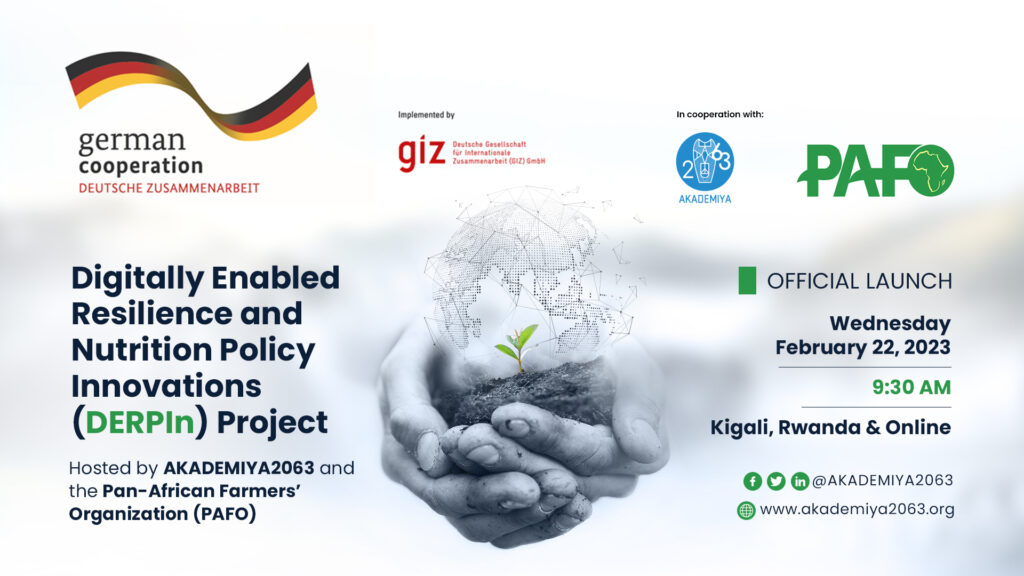
Wednesday, February 22, KIGALI – AKADEMIYA2063 and the Pan-African Farmers’ Organization (PAFO) are hosting an event in Kigali to mark the launch of the Digitally Enabled Resilience and Nutrition Policy Innovations (DERPIn) Project.
The project will leverage advances in digital infrastructure, big data, machine learning, and artificial intelligence (AI) to identify innovative and lower-cost solutions to increase the resilience of food systems and communities to climatic shocks and stressors. The project is commissioned by the German Federal Ministry for Economic Cooperation and Development (BMZ). It is supported through the Fund for the Promotion of Innovation in Agriculture (i4Ag) and, implemented by AKADEMIYA2063 on behalf of, the Deutsche Gesellschaft für Internationale Zusammenarbeit (GIZ) GmbH.
“With DERPIn, AKADEMIYA2063 proposes the development of a suite of digital solutions to support policy innovations at the intersection of climate change and food and nutrition security in Africa,” said Dr. Ousmane Badiane, AKADEMIYA2063’s Executive Chairperson. “We are delighted to be implementing this project on behalf of GIZ and, optimistic that our collaboration with PAFO will drive the creation of integrated, customizable, and context-specific products and services to guide action by food system actors across the project countries.”
Over three years and initially targeting five African countries – Benin, Ghana, Malawi, Uganda, and Senegal – the solutions proposed in this project will derive from participatory approaches that involve local stakeholders and beneficiaries in the content and format of services and products to ensure relevance and increase accessibility and use. Key target stakeholders range from the government to the private sector, and non-State actors, in particular, smallholder farmers.
“The Digitally Enabled Resilience and Nutrition Policy Innovations (DERPIn) Project will facilitate the production and use of relevant data, analytics, and digital solutions to guide government planners and private sector operators, including smallholder farmers and their organizations, to craft adapted, gender-sensitive, and impactful policies and programs to advance food systems transformation and enhance resilience to shocks,” said Dr. Babafemi Oyewole, PAFO’s CEO.
“The partnership between PAFO and AKADEMIYA2063 will also facilitate collaboration between the two institutions to improve the policy environment for the agricultural sector and build the capacity of African farmers’ organizations to make evidence-based agriculture and investment decisions and to engage effectively in policy dialogue, mutual learning, and accountability process under the CAADP,” he added.






